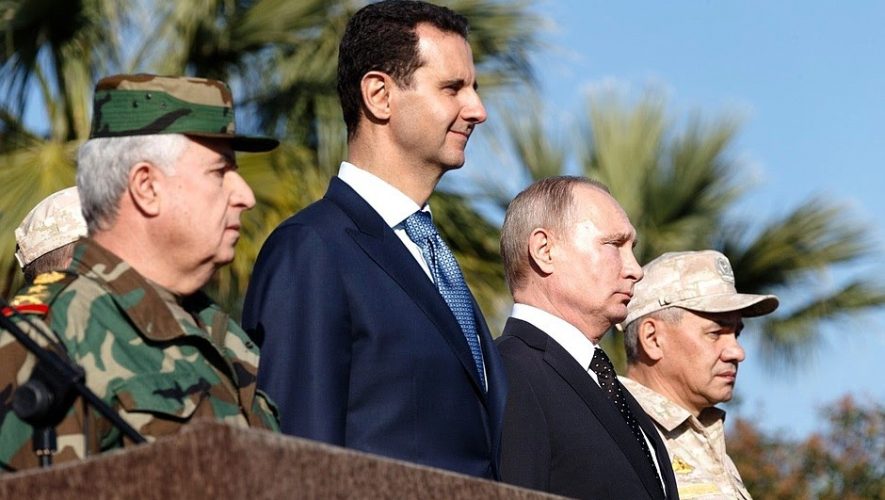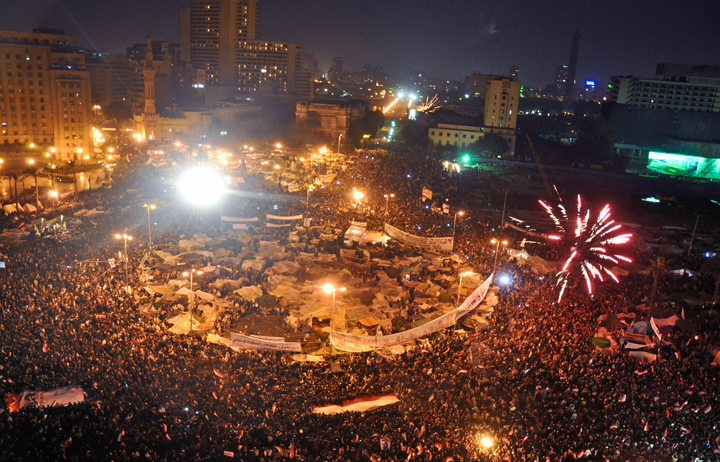April 23 marks the beginning of one of the most important international human rights cases in recent memory, the first criminal trial regarding state-sanctioned torture in Syria. However, it is not Syria or the United Nations adjudicating the case, but Germany.
Syria’s military conflict began in 2011, sparked by a series of protests against President Bashar al-Assad’s regime. To maintain power, Assad’s administration implemented policies that led to “the systematic torture and murder of tens of thousands of Syrians.” By 2019, it was estimated that one hundred thousand Syrians were imprisoned and never returned. Anne Barnard, former New York Times Beirut Bureau Chief, recounts her experience conducting interviews with former Syrian detainees, stating that no one indicated they were treated humanely.
Because of this and an overall deterioration in safety, an estimated 5.6 million Syrians have fled the country during the conflict. Germany is one of the top destinations for these refugees fleeing to Europe; in 2018, Germany took in 532,000 Syrians, more than any other European nation.
On February 12, 2019, German officials arrested two Syrian former intelligence officers, Anwar R. and Eyad A., for crimes against humanity. Both fled Syria during the ongoing civil war and sought asylum in Germany.
After Anwar and Eyad arrived, German authorities received criminal complaints from the European Center for Constitutional and Human Rights, Syrian activists, lawyers, and torture survivors and their relatives. Germany conducted a joint investigation with France (who detained an associate), collecting witness testimony to establish a link between the defendants and the General Intelligence Directorate (GID), Syria’s most powerful civilian intelligence agency. Additionally, German authorities received thousands of photos from a police photographer documenting the torture and killings in GID’s Al-Khatib prison in Damascus. The photos are being assessed by medical experts to be used as evidence.
Anwar was a high-ranking officer operating Al-Khatib. His branch interrogated detainees, operating as an underground prison. Inmates—most of whom were incarcerated for participating in pro-democracy demonstrations—were beaten, whipped, and shocked. Others were hung by their wrists, with only the tips of their toes touching the ground, and beaten in this position. These tactics were employed to extract information about Assad’s opposition.
Anwar is suspected to have been involved in the torture of at least four thousand people in 2011 and 2012. He was charged with fifty-eight counts of murder, as well as a count of rape and sexual assault. As of publication, he is the most senior government official indicted for human rights violations in Syria.
Eyed worked as a lower-ranking officer and allegedly served as an accomplice to the murder of two people and the torture or ill-treatment of at least two thousand more between July 2011 and January 2012. As such, Eyad is charged with aiding and abetting crimes against humanity. The Higher Regional Court in Koblenz, Germany, has scheduled twenty-three hearings with the intention of concluding the case on August 13. If convicted, Anwar could serve life in prison, while Eyad’s sentence ranges from three to fifteen years.
As the trial began, many Syrian refugees and human rights activists in Germany lauded the decision to try the defendants. One refugee and human rights lawyer, Anwar al-Bunni, even identified Anwar as the man who arrested him in Damascus. Another refugee, Amer Matar, a thirty-three-year-old Syrian journalist, recognized Anwar as his torturer. “In one of the interrogation sessions, someone ripped off my blindfold, and I saw [Anwar],” Matar recounted. To force information out of him, Anwar and a group of men allegedly beat him, leaving him unable to walk for days.
These crimes did not occur in Germany and did not involve German citizens. However, this does not mean Germany cannot adjudicate the case. International law allows states to exercise jurisdiction on a number of grounds. For one, many of the victims tortured by Assad’s regime now reside in Germany or have citizenship. Germany can claim jurisdiction using the Passive Personality Principle—a claim for adjudication based on the assertion that the case affected, or will affect, the state’s nationals.
Furthermore, Germany can invoke the Universality Principle, which affords every state jurisdiction to try certain offenses—chiefly piracy and war crimes—regardless of the location of the crime and nationality of the offender. Torture is a war crime under the Geneva Conventions of 1949 and their Additional Protocols of 1977 (specifically Article 85). The Convention—to which Germany and Syria are party—grants universal jurisdiction in cases of “grave breaches,” including wilful killing, torture, or inhuman treatment. To that end, Germany used this rationale to pass the Code of Crimes Against International Law in 2002. Article 1 of this code grants German courts universal jurisdiction on matters relating to genocide, crimes against humanity, and war crimes.
Western nations attempted to establish an international tribunal for Syria; however, Russia and China blocked these efforts, using their veto power at the United Nations Security Council. As such, this trial is a rare opportunity for the world to assert that Assad’s regime committed grave human rights violations and hold perpetrators accountable.
So far, the defendants’ lawyers have remained quiet. When asked about the trial, Assad asserted that his administration “never believed that torture could make the situation better as a state,” so they “don’t use it.”
This case shows differently. At least three of Anwar’s accusers have already testified and several more are expected to in the coming weeks. Once the prosecution presents years of evidence, including testimonies from victims and witnesses, it will be clear that Assad’s regime broke international law. Anwar and Eyed will likely be found liable for human rights abuses. However, the case is not just about holding these two accountable; it is about exposing the Assad regime’s crimes to the world and standing by the survivors.
Assad will likely never face arbitration for the atrocities of his administration. Because Syria is not party to the Rome Statute, the International Criminal Court (ICC) lacks jurisdiction to try Syrians. Article 15 of the Statute notes that the United Nations Security Council can refer cases to the ICC to circumvent this problem, but every time the United States tries, Russia vetoes.
As a last-ditch effort, the Guernica Center for International Justice (GCIJ)—a London-based law firm—petitioned the ICC to try Assad using a different provision of Article 15. The provision allows the ICC to investigate if a member state requests it. In this case, the request would need to come from Jordan, since some of the alleged crimes occurred there. The plaintiffs claim they were “shot at, bombed, and tortured” in Syria and forcibly relocated to Jordan. Forced displacement is recognized as a crime under international customary law, meaning the Syrian government violated international law on the land of a member state. Unless the Jordanian government joins this petition, the ICC cannot investigate. Another challenge arises in trying Assad; the ICC can request his extradition, but because it lacks the authority to arrest him, he can easily evade it.
Germany’s case could spark other nations to act. The prosecution undeniably has enough testimony and physical evidence to illustrate that human rights violations occurred in Syria. Presenting this evidence may encourage Jordan to join the GCIJ and pressure states to reconsider normalizing relations with Syria.
In diplomacy, states recall their ambassadors and cut ties with a nation to send a strong message of condemnation. Diplomatic sanctions target the political reputation of the sanctioned nation and serve as an alternative to more damaging diplomatic strategies—such as economic sanctions—that threaten economic stability. In 2012, foreign ministers and officials from more than seventy nations met in Tunisia to condemn the Syrian regime and pressure nations to cut diplomatic ties. The most notable players were the European Union (EU) members and the United States.
While many EU nations have severed ties since then, Hungary has considered cultivating a closer relationship with Syria. In 2019, Hungary started working on a proposal to send a chargé d’affaires—a diplomat that temporarily assumes the role of an ambassador—back to Syria as a step towards reopening their embassy. This made Hungary the first EU member state to attempt to normalize relations with Syria. According to European diplomats, Hungary’s aim is to strengthen its presence in Syria for humanitarian purposes. However, Hungary is only a minor contributor to humanitarian causes there, indicating that this is more of a pretext than a legitimate reason.
Emile Hokayem, senior fellow at the International Institute for Strategic Studies, noted that Hungary’s actions would “further erode the EU consensus,” but added that Germany, France and the United Kingdom no longer prioritize Syria. To that end, this case could illustrate Germany’s recommitment to addressing Assad’s atrocities and bolster the EU’s consensus that relations with Syria should remain severed.
For Hungary, it would be morally questionable to re-establish diplomatic ties with a nation whose leadership is facing allegations of human rights violations in court. Hungary would face ridicule from other EU members; they can point to Hungary’s lackluster humanitarian activities in Syria, along with this court case, to lambast the country for attempting to normalize relations.
Germany’s case could also inspire other countries to take action and use the Universality Principle to prosecute those within their borders suspected of taking part in these grave crimes. France has detained a third individual that worked in Anwar’s department, but charges are yet to be filed. Norway may be home to other former Syrian security service members. Bill Wiley, the founder and executive director of the The Commission for International Justice and Accountability, notes that there are more Assad regime officials in Europe that need to be prosecuted. He contends that the power of these trials is their ability to allow victims to recount “what happened to them and what is still happening in Syria,” before a public court.
Regardless of the case’s outcome, the prosecution’s evidence will reveal the inhumane and illegal actions Assad’s regime took to maintain power. Revealing the truth is the first step to holding perpetrators accountable. This case can serve as a cry to reunify the world against Assad’s horrendous practices and as a reminder to survivors that their voices and stories matter. The human rights of others must always be protected, even if we do not share their strife—this case is a step towards that commitment.




